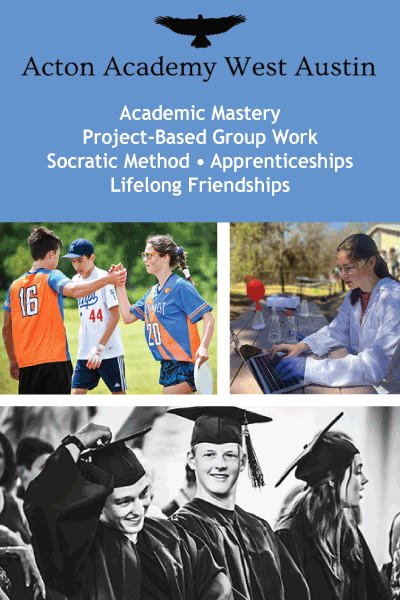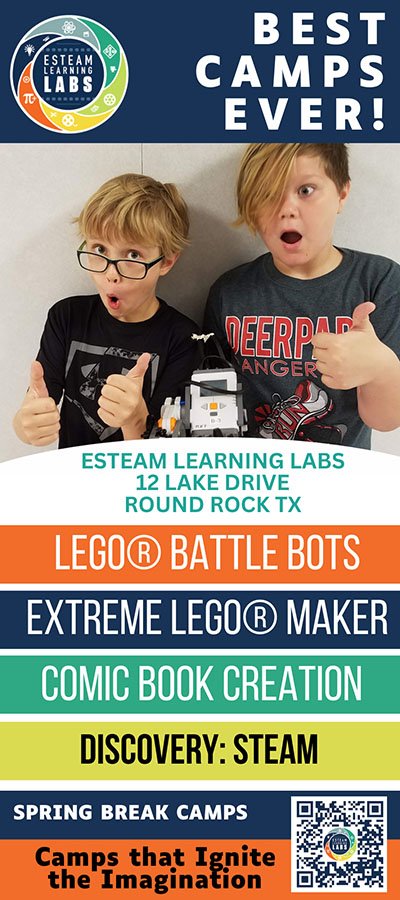How to help your daughter remain healthy and confident throughout her teen years
/
Guest contributor Michael Strong is a co-founder of innovative schools throughout the country, including the Khabele Strong Incubator in Austin. He is a thought leader in educational innovation, Socratic practice, and conscious entrepreneurship. Here he discusses the ways in which a carefully designed school culture can help prevent or reverse some of the common traumas of adolescence, particularly for girls.
Mary Pipher’s Reviving Ophelia, published twenty years ago, described teen culture in the United States as “girl destroying.”
She documented how happy, confident preteen girls often became diffident, depressed, and prey to self-harm, eating disorders, low academic performance, and suicidal thoughts. It is one of the most depressing books a parent of a girl can read.
Yet, sadly, if anything conditions for adolescent girls have gotten worse. For instance, a 2012 study found that the incidence of eating disorders among 15–19-year-old girls had gotten worse. Teen depression has increased five-fold since the early 20th century. Between 1990 and 2010 depression replaced asthma as the leading cause of disability among teens. By numerous metrics, we are seeing a public health crisis in adolescents, with girls being hit especially badly.
What can you do to protect your daughter?
Judith Rich Harris, in The Nurture Assumption, documented the impact that peers had on teens. While this is something we have all known intuitively, Harris showed that for a broad range of behaviors, including smoking, teen pregnancy, and academic performance, teen culture was more influential than were parents.
There are two general approaches to ensuring that your daughter is immersed in a positive peer culture:
- Be highly selective about the peers she spends time with, both in and out of school.
- Select a school that takes a proactive approach to improving peer culture.
The first is relatively widely recognized and can be approached by talking openly with teens and discussing their peer groups with them. Because the second is less familiar, as well as a domain in which I specialize, I’ll focus on that for the remainder of this article.
I began my life as an educator leading Socratic discussions in public schools in Chicago and Alaska. Although at first I perceived my work as a form of pedagogy, I soon came to realize that I was primarily focused on changing classroom culture. Most public school classrooms are not places in which students are intellectually engaged. My goal as an educator was focused on transforming classroom culture to an environment in which it became socially acceptable to discuss ideas thoughtfully and authentically.
Over time I realized that an explicit focus on group process was essential to improving the peer culture. As a consequence of my focus on group process, I often found that adolescent girls became leaders in the group. They were typically more socially mature and sophisticated than were the boys. At one site in Anchorage, minority girls in my classes achieved larger test score gains in four months than the average American student gains in four years (on the Watson-Glaser Critical Thinking Assessment, which correlates with IQ and SAT scores). One of the authors of Women's Ways of Knowing praised my work for its particular efficacy with teenage girls.
But the real insight for me was that it was possible for an educator to work with students deliberately to create a more positive and supportive classroom culture. However, because of the constraints put on educators in the public schools, I was not able to develop my work in that context. Since then I’ve primarily worked in private schools where I have more freedom to have a positive impact on peer culture.
Most recently, I’ve partnered with Khotso Khabele, co-founder of the Khabele School, to create the Khabele Strong Incubator. One of our primary themes is the deliberate design of healthy culture, including a culture designed to ensure that teen girls are healthy and confident. We’ve had teenage girls who were previously traumatized by their experiences at public schools come to us and, over time, become transformed into happy, confident young women once again.
How do we do it? We have three core themes in our program: Personal Development, Authentic Leadership, and Autodidacticism. Each of these is implemented primarily by means of peer coaching rather than by means of didactic teaching. Thus instead of having our students listen to lectures and fill out worksheets, we engage our students in active learning with their peers—and then coach them on how to become ever more effective leaders. For instance, a class might include the following exchange:
Teacher: Julie, would you mind leading class today?
(Julie leads a discussion on her own while the teacher observes quietly.)
Teacher: What worked best for you?
Julie: I was able to keep my peers engaged most of the time with my questions, but I had a hard time getting James to engage.
Teacher: What if you were to stop the conversation, ask him to make eye contact, and then ask him what it means for him to be part of this community? Do you think he would respect you if you put him on the spot and essentially demanded that he decide if he is really part of this community or not?
Julie: I can do that. I think he needs to be put on the spot like that. I'll do it tomorrow.
Obviously these sorts of interactions can be sensitive and delicate for a variety of reasons. The right behaviors in the right situations are highly contextual and personalized. But by means of this sort of very direct coaching of leadership, we've seen young people become dramatically more capable and confident leaders—while transforming peer culture for the better.
Michael Strong












